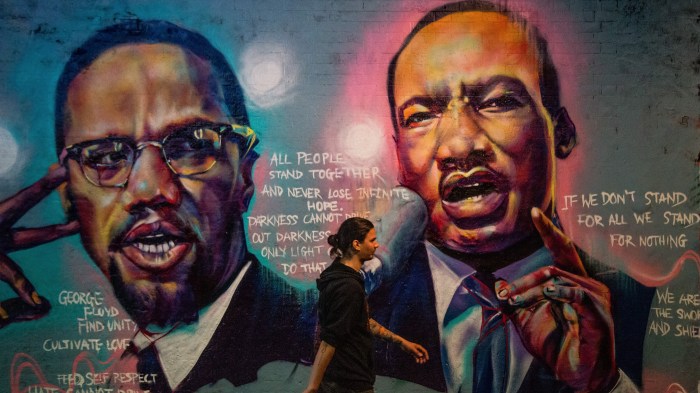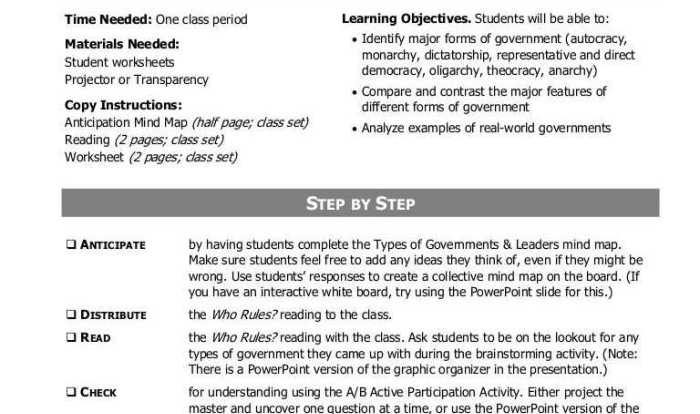The Malcolm X and MLK Compare and Contrast Worksheet offers a comprehensive analysis of two pivotal figures in the American Civil Rights Movement. This worksheet delves into their early lives, influences, shared beliefs, differing approaches, and lasting legacies, providing a nuanced understanding of their contributions to the struggle for racial equality.
By examining the similarities and differences between Malcolm X and Martin Luther King Jr., students can gain insights into the complex dynamics of the Civil Rights Movement and the various strategies employed to achieve social change.
Malcolm X’s Early Life and Influences
Malcolm X, born Malcolm Little, was born in Omaha, Nebraska in 1925. His father, Earl Little, was a Baptist minister and a follower of Marcus Garvey, a prominent Pan-Africanist leader. Malcolm’s mother, Louise Norton Little, was a homemaker. Malcolm’s childhood was marked by poverty and racism.
His father was killed by white supremacists when Malcolm was six years old, and his mother was institutionalized for mental illness when he was 13. Malcolm and his siblings were placed in foster care.Malcolm’s experiences as a child and young man shaped his views on race and identity.
He felt that white society was inherently racist and that black people needed to fight for their rights. He became involved in the Nation of Islam (NOI), a black nationalist organization, and adopted the name Malcolm X.Malcolm’s education was interrupted by his family’s financial struggles.
He dropped out of high school at the age of 15 and moved to Boston, where he worked a variety of odd jobs. He later attended the University of Nebraska-Lincoln for a brief period. Malcolm’s religious upbringing was also important to him.
He was raised in a Baptist household, but he later converted to Islam.
Martin Luther King Jr.’s Early Life and Influences
Martin Luther King Jr. was born in Atlanta, Georgia in 1929. His father, Martin Luther King Sr., was a Baptist minister, and his mother, Alberta Williams King, was a homemaker. Martin’s childhood was relatively comfortable, but he was still exposed to racism.
He attended segregated schools and was often the only black child in his class.Martin’s commitment to nonviolent resistance was influenced by his Christian faith. He believed that love and forgiveness were the most powerful weapons against racism. He was also inspired by the teachings of Mahatma Gandhi, the Indian independence leader who used nonviolent resistance to fight for India’s independence from British rule.Martin’s
educational background was strong. He graduated from Morehouse College with a degree in sociology and from Crozer Theological Seminary with a degree in divinity. He later earned a doctorate in theology from Boston University.
Similarities in Malcolm X and Martin Luther King Jr.’s Beliefs
Malcolm X and Martin Luther King Jr. shared many of the same values and goals. They both believed that black people should be treated with dignity and respect. They both wanted to end segregation and discrimination. And they both believed that black people should be able to control their own destiny.Their
experiences contributed to their commonalities. Malcolm X’s experiences with racism and discrimination led him to believe that black people needed to fight for their rights. Martin Luther King Jr.’s experiences with racism and discrimination led him to believe that nonviolent resistance was the most effective way to achieve social change.Despite
their different approaches, Malcolm X and Martin Luther King Jr. had similar views on racial equality and social justice. They both believed that black people should have the same rights and opportunities as white people. They both believed that segregation and discrimination were wrong.
And they both believed that black people should be able to live in peace and harmony with white people.
Differences in Malcolm X and Martin Luther King Jr.’s Approaches

Malcolm X and Martin Luther King Jr. had different approaches to achieving social change. Malcolm X believed that black people should use any means necessary to defend themselves against racism and discrimination. He advocated for self-defense and black nationalism. Martin Luther King Jr.
believed that nonviolent resistance was the most effective way to achieve social change. He advocated for peaceful protests, boycotts, and other forms of nonviolent resistance.There were several reasons for their differing approaches. Malcolm X believed that black people had been too passive in the face of racism and discrimination.
He felt that they needed to fight back in order to gain their rights. Martin Luther King Jr. believed that nonviolent resistance was the most effective way to achieve social change because it appealed to the conscience of white people and forced them to confront the evils of racism and discrimination.Malcolm
X and Martin Luther King Jr. had different strategies for achieving social change. Malcolm X advocated for black separatism and self-reliance. He believed that black people should build their own institutions and businesses and that they should not rely on white people for help.
Martin Luther King Jr. advocated for integration and cooperation between black people and white people. He believed that black people should work together with white people to achieve social change.
Impact of Malcolm X and Martin Luther King Jr.’s Legacies: Malcolm X And Mlk Compare And Contrast Worksheet
Malcolm X and Martin Luther King Jr. had a profound impact on the Civil Rights Movement. Malcolm X’s teachings on black nationalism and self-defense inspired many black people to stand up for their rights. Martin Luther King Jr.’s nonviolent resistance movement helped to achieve major victories for the Civil Rights Movement, including the passage of the Civil Rights Act of 1964 and the Voting Rights Act of 1965.Malcolm
X and Martin Luther King Jr. continue to be influential figures in the fight for social justice. Their teachings continue to inspire people around the world to fight against racism and discrimination.
Key Questions Answered
What were the key differences between Malcolm X and Martin Luther King Jr.’s approaches to the Civil Rights Movement?
Malcolm X advocated for self-defense and black nationalism, while Martin Luther King Jr. emphasized nonviolent resistance and integration.
How did Malcolm X’s early experiences shape his views on race and identity?
Malcolm X’s childhood experiences of poverty, discrimination, and the murder of his father by white supremacists had a profound impact on his beliefs about the need for black self-reliance and the rejection of white supremacy.


